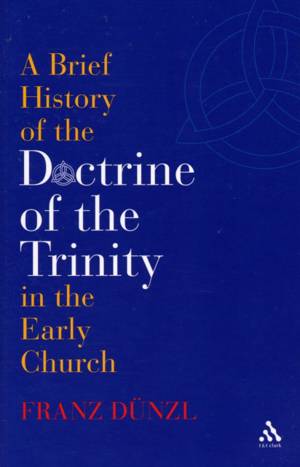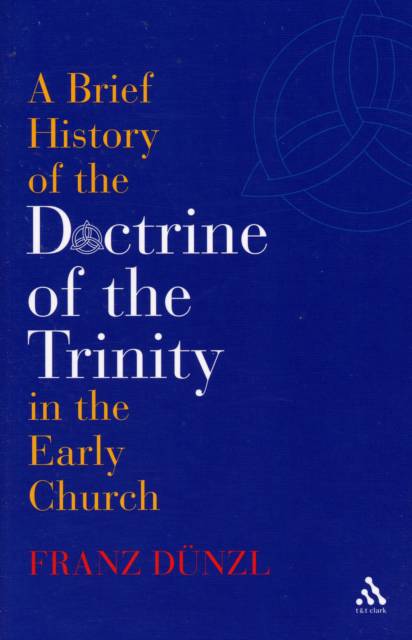
- Retrait gratuit dans votre magasin Club
- 7.000.000 titres dans notre catalogue
- Payer en toute sécurité
- Toujours un magasin près de chez vous
- Retrait gratuit dans votre magasin Club
- 7.000.000 titres dans notre catalogue
- Payer en toute sécurité
- Toujours un magasin près de chez vous
A Brief History of the Doctrine of the Trinity in the Early Church
Franz Dünzl
39,45 €
+ 78 points
Format
Description
Franz Dünzl gives an account of the formation of the doctrine of the Trinity in a narrative based on contemporary sources: as he remarks in the preface, he wants to describe the human struggle over the truth of the Christian image of God and as far as possible let the early Christians speak for themselves. His main concern is to describe the dynamic of the disputes over the theology of the Trinity in a vivid way which is easy to follow, pointing out the foundations of the doctrine and the decisive shifts in its development. He tries to see the often bitter discussion not as a barren dispute but as an evolutionary process in which the rivalry is a necessary and positive factor in moving the debate forward.
After an introduction to the problem, the book describes the beginning of christology and the first models of the relationship between 'Father' and 'Son': it then describes the controversies leading up to the Council of Nicaea, which are discussed at length, going on to show how Nicaea didn't settle the question and continuing the account up to the Council of Constantinople in 381. It brings out the political influences which governed this second stage of the discussion in an illuminating way. A survey and bibliography round the book off.Spécifications
Parties prenantes
- Auteur(s) :
- Editeur:
Contenu
- Nombre de pages :
- 162
- Langue:
- Anglais
- Collection :
Caractéristiques
- EAN:
- 9780567031938
- Date de parution :
- 30-10-07
- Format:
- Livre broché
- Format numérique:
- Trade paperback (VS)
- Dimensions :
- 137 mm x 213 mm
- Poids :
- 181 g







